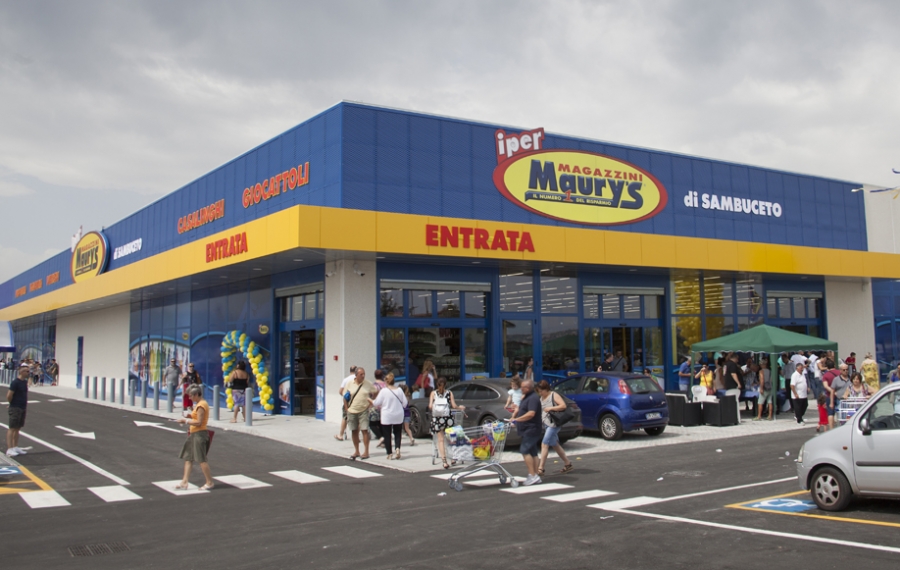Four months after the Havana International Trade Fair (FIHAV), a number of projects are being implemented. Among them are new ventures in areas that have long been off-limits to investors. As the state news portal Cubadebate reports, the first wholesale and retail centers with foreign partners are scheduled to open in April. In other areas, other new ventures have also come into implementation.
The first joint ventures in retail
For example, the Spanish-Cuban joint venture Gran Ferretero S.A will open a home improvement store next month. The company had already been constituted last April and will sell, among other things, building materials and hardware in wholesale form. This is primarily intended to supply input goods to the approximately 7,000 small and medium-sized enterprises (SMEs), but state-owned enterprises are also likely to benefit.
Wholesaler Emi Foods L.L.C. and Argentina’s Grupo Sur plan to set up stores selling food, textiles, household goods and hygiene products in Cuba in the coming weeks. In September, the Italian company Italsav plans to open a shopping center in Havana on a joint-venture basis, “leaving the sales and personnel to the Cuban state, while we manage and select the products,” Italsav’s CEO Berto Savina explained. The company has been acting as a supplier for the state-owned drugstore chain Agua y Jábon (“water and soap”) for many years. During the height of the pandemic, the company proved to be a reliable supplier of food and hygiene products. Italsav also supported the country’s vaccination campaign with a donation of disposable syringes. The company is backed by Italian businessman Mauro Fusano, whose Maury’s stores have been established in the Italian retail sector for 40 years.

A russian company is planning to open a “special department store” for chemical products and household items. These are to be sold as part of a joint venture with state trading giant Cimex S.A. Prices “for both wholesale and retail will be determined independently by the company,” the announcement says. In addition, a new hotel is to be built, aimed specifically at Russian guests.
All sales will take place in foreign currency, and the offer is to include many products in high demand. Vice Foreign Trade Minister Ana Teresita González, in presenting the reform last fall, said that in foreign investment in trade, preference would be given to “long-standing partners and companies from friendly countries.”
As Economy Minister Alejandro Gil emphasized, more trade and import companies are to be added in the second half of the year. They will initially locate in the properties of state-owned supermarkets and rent their warehouses. With the 2022 opening of domestic trade to foreign investors, Cuba aims to fight inflation by expanding supply. “Measures like this can help reactivate our industry,” said Gil, who urged the relevant agencies to speed up the issuance of new permits.
Other projects in transport & logistics
In addition to trade, new collaborations with foreign partners have recently been announced in the biotechnology and transportation sectors. One of the projects currently under negotiation is a joint venture for the management and expansion of the international airports Juan Gualberto Gómez in Varadero, Abel Santamaría in Santa Clara and Cayo Las Brujas. For Havana’s José Martí Airport, agreements have been concluded in the catering and food service sectors. See our article “Cuba opens airport talks” for more information on that issue.
Cuba’s railroad, Unión de Ferrocarriles de Cuba (UFC), has signed a memorandum of understanding with China’s Beijing Fanglian Tech Co, Ltd. to purchase spare parts for Chinese locomotives. Another contract with an unknown foreign company is for the installation of solar panels in Mariel’s railroad workshops.
For its part, the state-owned automotive group GEA wants to build new maintenance and service capacity with the South Korean Hyundai Group, which has been present in Cuba for many years. A separate factory is to take care of the production of spare parts and equipment for the automotive industry.

The joint venture of the Mexican meat producer Richmeat in the special economic zone of Mariel suffered a setback: Apparently, production of the popular pork mince (“picadillo”) had to be temporarily suspended due to a lack of financing. The Cuban news agency ACN spoke of a planned maintenance operation, production has since restarted. Since opening in November 2019, the company has been able to expand production from 30 to 160 tons per month, compared with a target of 300 tons.
Cuba plans to attract between 2.5 billion and 3 billion in inflows of foreign investment annually, but has so far fallen short of the goals it has set for itself. The main reasons, apart from problems such as a lack of foreign currency and bureaucratic obstacles, are not least the U.S. sanctions in force, to which new ones have been added in recent years, affecting above all the financial sector and foreign investment.
This article was first published on Cuba Heute, a German-language news portal.

